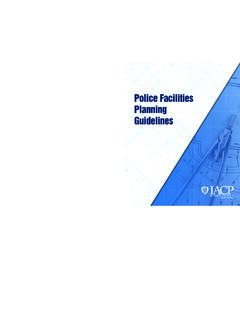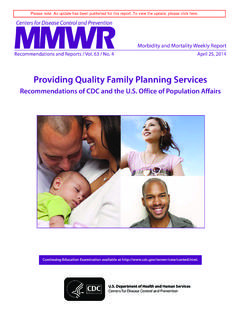Transcription of Learning Support Guideline (File Format PDF 472KB)
1 DEPARTMENT OFEDUCATIONAND SCIENCEAN ROINNOIDEACHAISAGUS EOLA OCHTALEARNING-SUPPORTGUIDELINESLEARNING Support GUIDELINESD epartment of Education and ScienceDEPARTMENT OFEDUCATIONAND SCIENCEAN ROINNOIDEACHAISAGUS EOLA OCHTALEARNING-SUPPORTGUIDELINESBAILE THA CLIATHARNA FHOILSI AG OIFIG AN tSOL THAIRLe ceannach d reach nOIFIG DH OLTA FOILSEACH N RIALTAIS, TEACH SUN ALLIANCE, SR ID THEACH LAIGHEAN, BAILE THA CLIATH tr d an bpost FOILSEACH IN RIALTAIS, AN RANN G POST-TR CHTA,4-5 B THAR FHEARCHAIR, BAILE THA CLIATH 2,(Teil: 01-6613111 - f -l ne 4040/4045; Fax: 01-4752760)n tr aon d olt ir leacharDUBLINPUBLISHED BY THE STATIONERY OFFICETo be purchased directly from the GOVERNMENT PUBLICATIONS SALES OFFICE, SUN ALLIANCE HOUSE,MOLESWORTH STREET, DUBLIN 2,or by mail order fromGOVERNMENT PUBLICATIONS, POSTAL TRADE SECTION,4-5 HARCOURT ROAD, DUBLIN 2.(Tel: 01-6613111 - ext. 4040/4045; Fax: 01-4752760)or through any bookseller No.
2 ???????? Government of Ireland 2000 Design by Corporate Graphics1 CONTENTSCONTENTSF oreword5 Acknowledgments6 Introduction 71 Principles and Aims of Learning of Learning Support of Learning Outcomes of Learning Support 162 Whole-School planning and Organisation for Learning Whole-School Plan for Learning Statement on Aims of Learning Support Statement on Roles and Responsibilities in Learning - Support Strategies for Co-ordinating Learning - Support and Special Needs Ser Strategies for Preventing Learning Strategies for Implementing Early Inter vention Procedures and Criteria for Identifying and Selecting Pupils for Supplementar y Teaching Procedures for the Provision of Supplementar y Teaching by the Learning - Support Procedures and Criteria for Continuing/Discontinuing Pupils in Receipt of Supplementar y Strategies for Communicating Information Whole-School Approaches to Involving Whole-School Procedures for Referring Pupils to Out-of-School Whole-School Procedures for Monitoring the Progress of Individual Record Keeping in Relation to Learning Whole-School Procedures for the Provision of Resources for Learning Whole-School Approaches to Time-tabling Pupils for Supplementar y Whole-School Policy on the Work Schedule of the Learning - Support Whole-School Approaches to Monitoring the Implementation of the Whole-School Plan on Learning Whole-School Strategies for Reviewing Policy on Learning Support and Revising the School and Implementing Policy on Learning Support in Schools in Designated Areas of Educational and Implementing Policy on Learning Support in Schools with a Shared
3 Learning - Support Need for a Cluster-Wide Policy Up a Learning - Support Ser Cluster-Wide Policy on Learning Support343 Partnership in Learning Board of Management Policy Development and Principal Teacher Overall of the Principal Teacher in Developing and Implementing Learning - Support and Special Needs Ser of the Principal Teacher in Supporting the Work of Class of the Principal Teacher in Supporting the Work of the Learning - Support of the Principal Teacher in Working with Parents, Out-of-School Agencies and the Community of the Principal Teacher of a School in a Designated Areaof Educational of the Principal Teacher of a School with a Shared Learning - Support Ser vice Class Teacher First Line of the Class Teacher in Developing and Implementing the School Plan on Learning of the Class Teacher in Collaborating with the Learning - Support of the Class Teacher in Collaborating with Parents of Pupils in Receipt of Supplementar y of the Class Teacher in Identifying and Supporting Pupils with General or Specific Learning Learning - Support Teacher Supplementary Teaching.
4 Collaboration and of the Learning - Support Teacher in Collaborating with the Principal of the Learning - Support Teacher in Collaborating with Class of the Learning - Support Teacher in Consulting and Collaborating with Parents of the Learning - Support Teacher in Co-ordinating the Selection of Pupils for Supplementar y of Supplementar y Teaching by the Learning - Support Teacher of the Learning - Support Teacher in Conducting Assessments and Maintaining of the Learning - Support Teacher in a School in a Designated Area of Educational of the Learning - Support Teacher in a Cluster of Collaborating and Sharing Information of Parents in Supporting the Work of the School of Parents in Communicating with the planning and Monitoring Their Own Learning 544 Screening, Selection, Assessment and Review of Pupils for Supplementary Teaching General Screening for Learning a Cut-off from the Class Teacher from of the Diagnostic of the Diagnostic the Results of the Diagnostic planning the Progress of Individual Monitoring of Progress and Learning Progress at the End of an Instructional Keeping 655 Approaches to planning and Assessment and Profile and Learning planning and Progress of Supplementary Teaching General Guidelines Teaching in English of Time Skills and Oral Emergent Literacy Phonemic Word-Identification Skills Reading Comprehension Reading and Pupils in Reading Continuous Teaching in of Learning Difficulties in of Supplementar y Teaching in Exposition and Discussion in Mathematics Conceptual Knowledge in Information and Communications Technology to Support Children with Learning
5 Tutoring and Processing88 Appendix A: Special Intervention Programmes91 Appendix B: Individual Profile and Learning Programme95 Appendix C: Weekly planning and Progress Record99 Glossary1025 FOREWORDF oreword by the Minister for Education and ScienceThese Learning - Support Guidelinesare an important part of myDepartment s Reading Initiative and are aimed at ensuring that all childrenachieve appropriate levels of literacy and numeracy during the course of theirprimar y education. Remedial teachers, formerly known as Learning -supportteachers, make an invaluable contribution to the educational development oflarge numbers of children. Their work ensures success at school for manychildren who might other wise fail. I am confident that these guidelines,particularly by setting the role of the Learning - Support teacher firmly in the context of a whole-school approach, will further enhance this work.
6 I also believe that they will enable principals andteachers in all schools to take a fresh look at the arrangements that they have in place, both interms of prevention and early inter vention, for children with Learning difficulties. Careful planning is a vital component of ever y enterprise in which people work co-operativelytowards the achievement of common objectives. The Learning - Support Guidelinesrecommend highlevels of co-operation between class teachers, Learning - Support teachers and parents in supportingchildren who are experiencing Learning difficulties. Strategic planning at school level ensures thatmaximum benefit will be gained from the combined efforts of teachers and parents. It is vital alsothat class teachers and Learning - Support teachers have a shared understanding of the learningneeds of individual pupils, and of their relative responsibilities in responding to these needs, sothat they can co-operate closely in the implementation of effective Learning programmes.
7 Our understanding of important aspects of children s educational development continues to begreatly enhanced through research. Many of the recommendations in these guidelines emanatefrom a large-scale sur vey carried out, on behalf of my Department, by the Educational ResearchCentre. One of the main conclusions of the report of that sur vey is that early and concentratedsupport is critical for children who experience Learning difficulties. It is most important, therefore,that all schools implement effective early inter vention programmes to ensure that children withlearning difficulties do not slip through the net at the early stages of their primar y guidelines have been drawn up following extensive consultations between my Departmentand representatives of parents, school management and teachers. I would like to express mygratitude to the Educational Research Centre, to the Advisor y Committee and to the officials of my Department for their excellent work in producing these guidelines, which merit ver y carefulconsideration.
8 They will, undoubtedly, result in an even more effective Learning - Support ser vice and their implementation will assist schools in deriving maximum benefit from a most for Education and Science A considerable number of people contributed to the design and compilation of thispublication, Learning - Support Guidelines. In particular, the contribution and dedicatedcommitment of the members of the Advisor y Committee appointed by the Department of Education and Science is gratefully appreciated: Margaret Casey, Irish Learning - Support Association Mar y Killeen, National Parents Council Primar y Don Mahon, Department of Education and Science Maria McCarthy, Irish National Teachers Organisation Deirbhile Nic Craith, Irish National Teachers Organisation amonn Muircheartaigh, Department of Education and Science Murch , Department of Education and Science (Cathaoirleach) Dr Gerr y Shiel, Educational Research Centre Mar y Toher, Catholic Primar y School Managers AssociationSpecial thanks are due to Dr Gerr y Shiel, Educational Research Centre for his invaluablecontribution to this work.
9 The advice, contributions and Support of Mr P id McGee, Director,Ms Therese Day, Ms Anita Prunty and Ms Anne McGough, Special Education Department, St Patrick s College, Ms Mar y Murtagh, St Patrick's , Greystones and P draig Bearnais,Department of Education and Science are gratefully of Education. (1987). Guidelines on Remedial Education. Dublin: Stationer y OfficeOverview The primar y purpose of the Learning - Support Guidelines is to provide practicalguidance to teachers, parents and otherinterested persons on the provision ofeffective Learning Support to pupils with lowachievement/ Learning difficulties. TheLearning- Support Guidelines reflect thechanges and advances in Irish Educationsince the document Guidelines on RemedialEducation1was issued to schools in 1988. The Guidelines on Remedial Education setout the aims of remedial education andprovided practical advice for schools on theorganisation of a positive schoolenvironment for children with learningdifficulties.
10 The development of remedialeducation prior to 1987 was reviewed andrecommendations were put for ward for thefuture direction of remedial such as the selection of children forremedial teaching, the development ofschool policies on the prevention, diagnosisand remediation of Learning difficulties andthe role of the remedial teacher wereconsidered. The period since 1988 has been a time ofsignificant development and considerablechange in Irish education. However, nationaland international studies of readingachievement indicate that reading standardsat primar y level in Ireland have not improvedsignificantly during this time. Moreover, ofparticular importance is the fact that asignificant number of children continue toleave primar y education with less thanadequate skills in reading and/or is therefore timely and opportune to lookagain at the deliver y of remedial educationand to make appropriate revisions to theguidelines available to Strategies to Address LowAchievement Many of the developments in Irish educationsince the Guidelines on Remedial Educationwere issued have impacted on provision forless able children.








